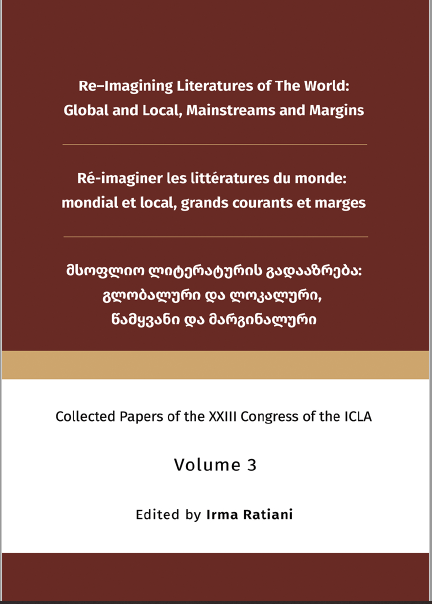Philosophy and Poetry (Fichte and Baratashvili)
Main Article Content
Abstract
As a result of the semantic research carried out in the 20th century, it was found that `me' is an undefined word. Namely, the author of the original semantic theory, A. Wierzbicka aimed to identify those semantic units (`primitives') which are in themselves unexplained (intuitively clear meaning) and through which any word or expression can be defined. One such `primitive' is `me'. Thus, the semantics of `I' cannot be explained through other words (of course, here we mean psychological, philosophical, etc. explanations), i.e. It has a clear meaning in itself – ``I am me'' or ``I am me''. But ``I am I'' is the first (of three) basic provisions of that philosophical concept, which, V. According to Schlegel, it gave impetus to the origin of romanticism. We refer to Johann Gottlieb Fichte's ``General Doctrine of Science''. This provision of Fichte's theoretical system means the selfidentity of `I' in the logical aspect, and in the semantic aspect (although the philosopher will not ask this question) – that `I' is an indefinable concept. Fichte's concept of personality, which found expression in romanticism, is already meant here. According to this statement, the logical center of the universe is `I', that is, the universe is logically based in `I', as a `subject'.
As a result of a special analysis, the article concludes that the poetic image of `I' in the poetry of Georgian romanticists (and, especially, N.Baratashvili) was formed in accordance with the same principles that were the basis for the development of the concept of `I' in Fichte's philosophical system.
